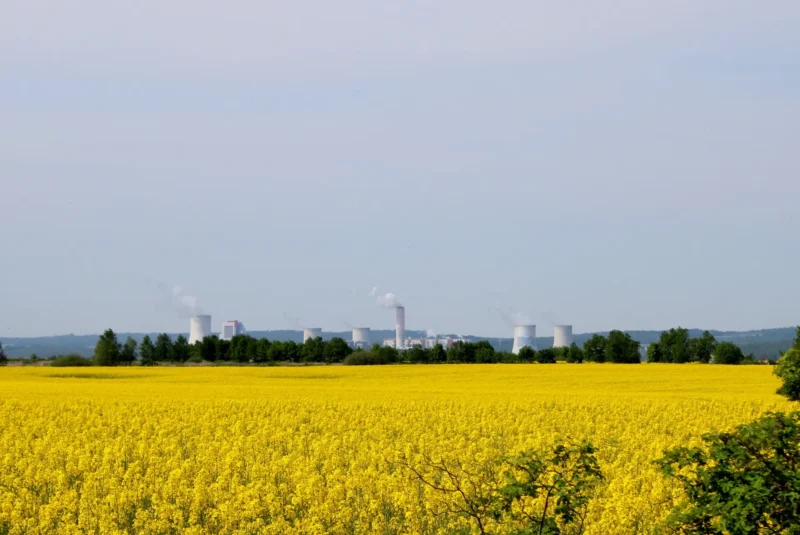
Read previous chapters of the story:
It’s more than a local problem. However, people on the Czech side of the border near the mine are experiencing this uncertainty a bit more intensely. As for the problem of drought and water scarcity, the Fiala government has shown, at least symbolically, that it either does not understand the problem or does not consider it so pressing. By signing the agreement with Poland, Fiala answered the question, Water or coal? which served as title of the borderland residents’ public campaign. He chose coal, but this choice has its own context, which is shaped by, among other things, domestic politics and economics, including various interests.
The Czech and Polish sides see the Turow dispute differently, but this is not the result of a simple “national” disagreement. Rather, it is an example of how a profit-oriented market economy can effectively divide people and even pit them against each other.
And these are often people who have more in common with each other than they have in difference. Paradoxically, borders and borderlands tend to be places of interpenetration and mutual influence, even if it may seem otherwise on a map. Air or water know no boundaries, and the current framing of the environmental crisis to a matter of national politics has long proved a serious problem, as the Polish-Czech dispute over Turow illustrates very well. From the point of view of nature, the lines on the map are actually a purely human construct.
Although in the case of Turow the national factor quickly became apparent, the problem in the whole affair is rather the contradiction between nature and capitalist society, and between labor and profit-driven capital, which still achieves its goals through the exploitation of people and nature. The ecological crisis, like the entire constellation of crises in the modern ecosystem, is a consequence of these contradictions, and undoubtedly also has important social and political dimensions that cannot be separated.
– Today’s ecological crisis is also a political crisis – sociologist Oleg Suša of the Czech Academy of Sciences tells us, commenting on the current complex situation. One manifestation of this is the current struggle between half-hearted solutions like “paint it green” on the one hand, and negationism based on distrust (often justified) on the other.
The history of the Turow mine dispute cannot be viewed outside of a more global context.
There are now thousands of different Turows all over the planet, and unfortunately, not even the policies of green transition herald their end. Both the shift away from coal and the transition from fossil fuels to other forms of mining or to RES require conceptual, realistic and ecosocial solutions that work for people, nature and the environment. The current emphasis on technology and resources is not a break with the past, which logically must apply to the way modern society operates, including an exploitative approach to nature as a “resource” to be extracted. This is perhaps the greatest weakness of the current green agenda, faithfully following in the footsteps of profit-driven economics and commercialization without boundaries or limits.
But even at a purely technical level, a major prerequisite for successful social and economic transformation is the ability to anticipate, plan long-term and conceptually, and have a clearer vision of the future, but this must be accompanied by knowledge of specific national contexts and problems. Without this, even well-planned changes in today’s context will become “riding a tiger in the dark,” as sociologist Suša put it. If there is a lack of foresight and imagination, they will be replaced by all sorts of “substitutes” or internal political wars and games.
Seemingly, in the context of Turow, this criticism could easily be directed primarily at Polish politicians, whose decisions in Lower Silesia are reminiscent of the days of the Marquise de Pompadour and her slogan “After us, the flood.” However, the slogan could equally apply to the Czech Republic.
(to be continued)

This report was developed with the support of Journalismfund.
Piotr Lewandowski, Iwona Lewandowska and Czesław Kulesza co-operated in the preparation of this report.
Subscribe to Cross-border Talks’ YouTube channel! Follow the project’s Facebook and Twitter page! And here are the podcast’s Telegram channel and its Substack newsletter!
Like our work? Donate to Cross-Border Talks or buy us a coffee!
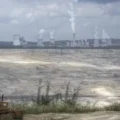
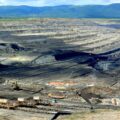
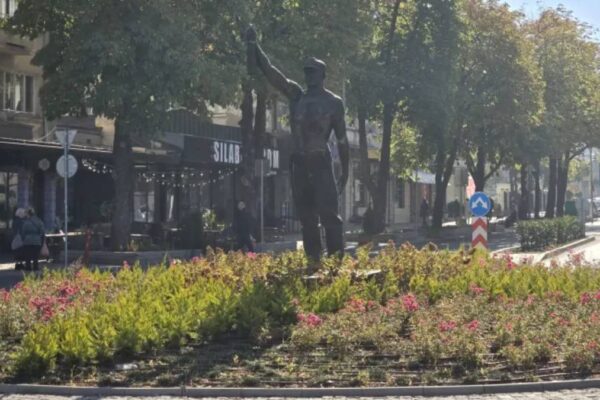
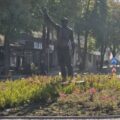
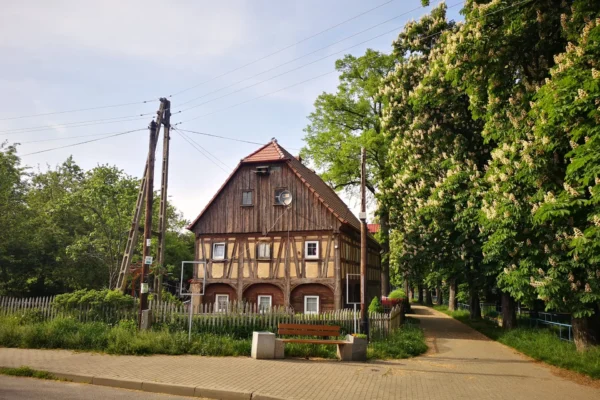
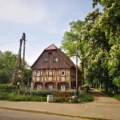
![Jiu Valley: is there a life after coal? [GALLERY]](https://www.foundintransition.eu/wp-content/uploads/2024/01/wieza-wyciagowa-i-chmury-scaled-1200x675-1-600x400.jpg)
![Jiu Valley: is there a life after coal? [GALLERY]](https://www.foundintransition.eu/wp-content/uploads/2024/01/wieza-wyciagowa-i-chmury-scaled-1200x675-1-120x120.jpg)
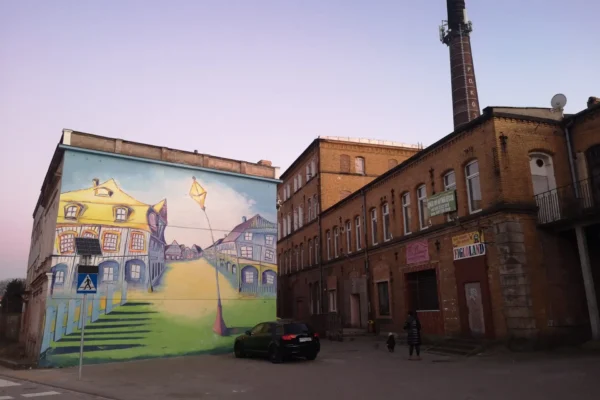
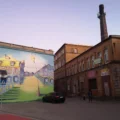
3 Comments
Lost Opportunity for a Just Transition: the Case of Turów Lignite Mine. PART TVELVE: Uncertainty - Cross-border Talks
5 January 2024[…] a Just Transition: the Case of Turów Lignite Mine. PART NINE: Czech Skeletons in the Coal Closet Lost Opportunity for a Just Transition: the Case of Turów Lignite Mine. PART TEN: Paradoxes Lost Opportunity for a Just Transition: the Case of Turów Lignite Mine. PART ELEVEN: There will […]
Lost Opportunity for a Just Transition: the Case of Turów Lignite Mine. PART THIRTEEN: Past Covered in Coal, Future Uncertain - Cross-border Talks
3 August 2024[…] a Just Transition: the Case of Turów Lignite Mine. PART NINE: Czech Skeletons in the Coal Closet Lost Opportunity for a Just Transition: the Case of Turów Lignite Mine. PART TEN: Paradoxes Lost Opportunity for a Just Transition: the Case of Turów Lignite Mine. PART ELEVEN: There will […]
Lost Opportunity for a Just Transition: the Case of Turów Lignite Mine. PART ELEVEN: There will be nothing without the mine - Cross-border Talks
3 August 2024[…] Lost Opportunity for a Just Transition: the Case of Turów Lignite Mine [PART ONE] Lost Opportunity for a Just Transition: the Case of Turów Lignite Mine. PART TWO: In the New Poland Lost Opportunity for a Just Transition: the Case of Turów Lignite Mine. PART THREE: Pride of Socialist Poland Lost Opportunity for a Just Transition: the Case of Turów Lignite Mine. PART FOUR: First Worries About the Water Lost Opportunity for a Just Transition: the Turów case. PART FIVE: At Any Cost Lost Opportunity for a Just Transition: the Turów case. PART SIX: There Is No Plan Lost Opportunity for a Just Transition: the Case of Turów Lignite Mine. PART SEVEN: Arrogance and Lack of Empathy Lost Opportunity for a Just Transition: the Case of Turów Lignite Mine. PART EIGHT: Barriers and water pipes Lost Opportunity for a Just Transition: the Case of Turów Lignite Mine. PART NINE: Czech Skeletons in the Coal Closet Lost Opportunity for a Just Transition: the Case of Turów Lignite Mine. PART TEN: Paradoxes […]